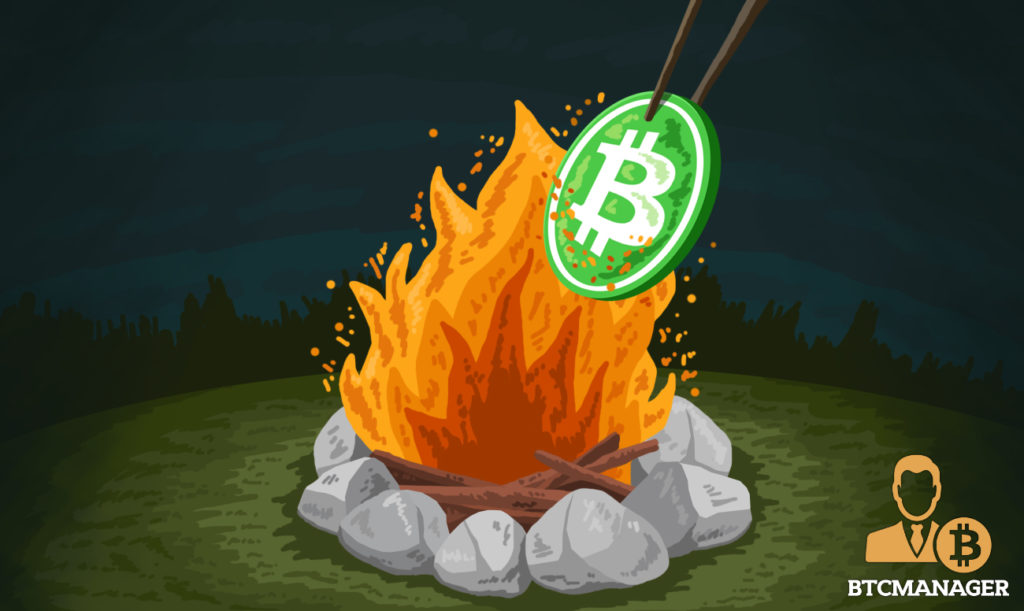Ad MIT Unveiled a Plan to Destroy Bitcoin (BTC)
Bitcoin could become irrelevant if any of the ideas put forth by MIT students become a reality. First though, let’s go back to 2008 when the US went through the worst recession in history; it was even considered to be greater than the “great depression”. The cause of it ultimately came down to the banks issuing money/mortgages to individuals that they didn’t have and the housing market burst as a result.
A year later, the still unknown Satoshi Nakamoto served the world an entirely new solution to the problem and Bitcoin was born. Nakamoto’s original whitepaper outlined a peer-to-peer electronic payment system.
It removed the need for a financial institution to be the intermediary between two people when sending money to one another. Now almost a decade later, there are 24 million active Bitcoin wallets currently in use around the globe.
Back in 2011, a single Bitcoin was worth around a dollar, but today, BTC is valued at just over $9,300.
The coin reached its record-high of just over $20,000 in mid-December 2017 and grew 1,245 % in 2017 alone.
Despite its popularity, a tech writer at the world-renowned MIT – Morgan Peck, just proposed a scenario (or three) where Bitcoin could become irrelevant. Let’s take a closer look. Bitcoin could become irrelevant: Government Takedown
The first scenario entails the government creating their own form of digital currency – dubbed “Fedcoins”. This is basically the same system we currently have, except everything is electronic. You would set up a “wallet” with the Federal Reserve or an affiliate bank, and you’d be able to buy the digital currency with US dollars at a one-to-one ratio. The nodes, or computers running the blockchain, would be updated by institutions approved by the federal reserve. An undergraduate at Yale, Sahil Gupta, explained that “these authorized nodes could be things like Bank of America, JP Morgan—basically, trusted institutions.
”
Gupta went on to explain how he believes the Fedcoins will be used:
“I’d imagine people first get comfortable spending Fedcoin on things like groceries and movie tickets. As people realize it’s easier than cash, as businesses realize it’s cheaper than credit cards, and as banks realize it’s literally more secure, so goes the process by which dollars are phased out of the money supply, and Fedcoin phased in.”
This isn’t a new concept; The Bank of Canada built a simulation for such a currency back in 2016. Sweden has also taken massive steps towards becoming a completely cashless country.
Facebook
Currently, the social media giant Facebook has over 2 billion active users. The second scenario describes a large platform persuading a large group of its members to branch-off and run its own proprietary version of the Bitcoin software. This can be done by way of a ‘hard fork’ at a certain block on the original blockchain. The new group would then start building upon the new blockchain with its own specifications and could build their own corporate coin.
This happened last year with the creation of Bitcoin Cash.
Peck describes another scenario that seems more plausible than trying to get a large group of individuals on Facebook to hard fork.
First, Facebook would create its own third-party Bitcoin wallet and integrate it into its product suite.
Peck explains:
“For those who already use Bitcoin, the experience is so vastly superior to what they’ve previously experienced that they immediately migrate their funds to their Facebook wallet. Those who don’t yet own any bitcoins, or have never heard of them, could be given the option of earning some on the site, either by watching advertisements or by writing Facebook posts for others to see. For those tired of watching ads, you mix in another fun feature.
In exchange for a clean, ad-free experience, users can choose to let Facebook mine bitcoins with their computer’s unused processing power.”
Once Bitcoin has entered into the mainstream and is used daily by millions of individuals on Facebook’s product suite, the company could quietly fork and adopt a new version meaning hte original Bitcoin could become irrelevant.
Most of these users would have no clue, and now Facebook could control every aspect of its own blockchain. Multiplication
The last scenario in which Bitcoin could become irrelevant, is one that is already unfolding. Peck describes it as the “tokenization of everything” and it involves the world transforming into a hyper-efficient barter system.
Every company would release their own cryptocurrency and an automated system would allow individuals to trade each asset seamlessly.
>> Martin Lewis Files Lawsuit Against Facebook Over Crypto Scams
Cambell Harvey, a professor of Finance at Duke University, explained :
“Think of this as an incredibly efficient barter system. Barter is generally inefficient, but if you have a network and you tokenize the goods and services and enable it with a blockchain, it can become very efficient. Without a network, you have to find the person that wants to trade four goats for the cow. That’s very difficult, to find that person.
But with a network and with collateralization of blockchain-based tokens, it’s much easier.” Likelihood?
Bitcoin could become irrelevant? Really? Could any of these ideas actually come true? Personally, I don’t think that any new system would completely “destroy” Bitcoin, but a new project emerging in the blockchain space could easily make Bitcoin irrelevant. The original blockchain is slow and expensive and sooner or later, it will be passed by another alternative cryptocurrency that can process thousands of transactions in a second, with far fewer fees. .
